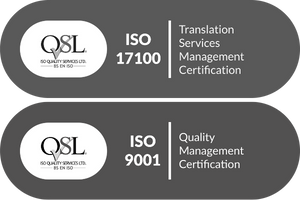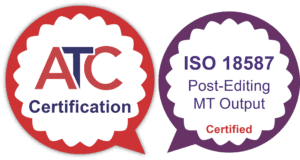
Why work with a professional interpreter?
- Patients have better health outcomes and higher satisfaction rates when working with professional interpreters, and trained interpreters are less likely to make serious mistakes compared to those without training (1,2,4)
- Certified and Qualified interpreters have completed training, have demonstrated proficiency, and are familiar with medical terminology and interpreting skills and ethics.
- Under Oregon’s HB 2359 law, working with Certified and Qualified interpreters on the Oregon Health Authority registry is required whenever possible.
Why shouldn’t we rely on a family member or friend?
- LEP patients may not be as open with medical staff if they feel uncomfortable discussing private medical, relationship and financial issues in front of the person serving as the interpreter.
- When there is a conflict of interest, family members or friends may not relay information accurately, and patients may not speak up; according to the CLAS (Culturally and Linguistically Appropriate Services) Standards, “to ensure complete, accurate, impartial, and confidential communication, family, friends or other individuals, should not be required, suggested, or used as interpreters.”*
What about bilingual providers?
- In order to communicate directly with patients, bilingual staff need to demonstrate language skills, including knowledge of terminology relevant to their role. According to the CLAS Standards, “Bilingual clinicians and other staff who communicate directly with patients/consumers in their preferred language must demonstrate a command of both English and the target language that includes knowledge and facility with the terms and concepts relevant to the type of encounter. Ideally, this should be verified by formal testing.” Providers whose proficiency has not yet been verified should work with interpreters, because bilingual providers may overestimate their skills and leave out crucial information when unable to convey it effectively (3).
- Interpreting requires many skills beyond bilingual proficiency, so even providers who are able to communicate directly with LEP patients in their preferred language should not interpret if they are not Certified or Qualified interpreters. According to the CLAS Standards, in addition to verifying interpreters’ language proficiency, “Health care organizations should verify the completion of, or arrange for, formal training in the techniques, ethics, and cross-cultural issues related to medical interpreting*”. Bilingual providers may have strong language skills, but lack skills like memory, note-taking, the ability to manage an encounter and the ability to use different modes of interpreting (simultaneous, consecutive, chuchotage) appropriately.
At Linguava, we are dedicated to reducing communication barriers and providing equity to all members of our community through language access services.
If you are interested in learning more about incorporating language access into your organization or would like to book a training session, contact us today.
STUDIES REFERENCED
1 https://www.ncbi.nlm.nih.gov/pmc/articles/PMC1955368/pdf/hesr0042-0727.pdf
2 https://www.ncbi.nlm.nih.gov/pmc/articles/PMC5798672/pdf/10.1177_0046958017739981.pdf
3 https://www.ncbi.nlm.nih.gov/pmc/articles/PMC1855271/pdf/11606_2007_Article_136.pdf
4 https://thinkculturalhealth.hhs.gov/assets/pdfs/EnhancedNationalCLASStandards.pdf
LEGISLATION REFERENCED
CLAS Standards (4-7 are mandates)
https://thinkculturalhealth.hhs.gov/clas/standards
Title VI Policy Guidance
https://www.gpo.gov/fdsys/pkg/FR-2000-08-30/pdf/00-22140.pdf
https://www.gpo.gov/fdsys/pkg/FR-2003-08-08/pdf/03-20179.pdf
Oregon Revised Statutes
https://www.oregonlegislature.gov/bills_laws/ors/ors413.html
*Consider a Jehovah’s Witness whose interpreter is a fellow church member when he is asked whether she would accept a blood transfusion, or a domestic violence survivor whose interpreter is her partner’s sister when she is asked if she feels safe at home.
**Certified and Qualified interpreters in Oregon are required to complete 60 hours of training, meeting the NCIHC recommendation—so you can easily verify the completion of training by verifying that an interpreter is on the OHA registry








